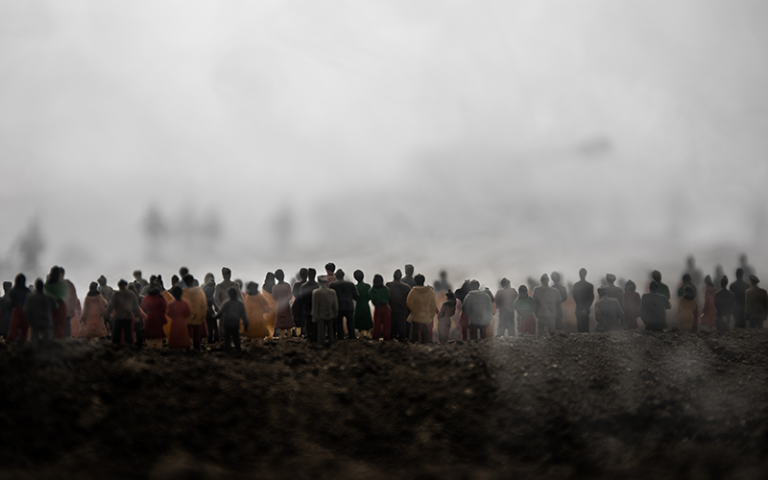Re-framing cultural, legal and public understandings of crimes against humanity
Research by Professor Phillippe Sands was published as a multi-award-winning book, engaging millions worldwide in international criminal law and justice and encouraging reflection on past atrocities.

28 April 2022
At the Nuremberg trials (1945-1946) Nazi leaders were put on trial for crimes against peace, war crimes (including the new concept of genocide) and crimes against humanity. The trials were instigated before the International Military Tribunal, including judges from the US, UK, France and the Soviet Union.
UCL Laws academic, Professor Phillippe Sands explored the roots of the international criminal law used during the trials, including a study of archival papers by Robert H Jackson (Chief Prosecutor at Nuremberg), and the papers of Hersch Lauterpacht and Rafael Lemkin, a prominent international lawyer and assistant prosecutor in the trials. Professor Sands traced Lauterpach and Lemkin’s thinking on the characterisation of the crimes (genocide and crimes against humanity), investigating the relationship between the protection of the individual and the group. He also interviewed survivors from Lviv, relatives of those involved in the Nuremberg proceedings, and his own family.
In response, he wrote the best-selling and award-winning non-fiction book ‘East West Street: On the Origins of Genocide and Crimes against Humanity’. The book reveals how thinkers like Lemkin and Lauterpacht attempted to adapt the apparatus of law to address unprecedented atrocity, interweaving personal histories with the development of international criminal law.
Starting new international debate
The book prompts fresh, complex questions about the role of present-day individuals in confronting the responsibility of their own families and societies for past atrocities. More than 400,000 copies have been sold, including by e-book and audiobook, translated into 22 languages.
The work has inspired creative responses including new performance pieces such as A Song of Good and Evil which debuted at London’s Southbank Centre in 2014 and has been performed in English, French and German at over 24 venues in 11 different countries and viewed by more than 20,000 people. A documentary film My Nazi Legacy: What Our Fathers Did, has been screened around the world (available on Netflix, Amazon etc) and features descendants of Nazis whom Professor Sands met whilst researching East West Street; a Radio 4 podcast ‘The Ratline’ featuring Professor Sands’ work has been downloaded more than 2.2 million times.
Bringing criminal law to the masses
A wide range of communities globally are now more engaged with international criminal law and justice and the UCL-led work has informed a new convention on crimes against humanity. Professor Sands has given hundreds of talks in over 30 countries to groups including judges, lawyers, Jewish and other community groups, and the general public.
Professor Sands’ use of the insights and platform offered by ‘East West Street’ has helped persuade government and NGO audiences of the need for a new convention on crimes against humanity, articles of which have been drafted by the International Law Commission. His work has also been invoked in support of new international rules on a possible new crime of ecocide.
His book has enabled active commemoration of the Holocaust and legal innovation. Public screenings of My Nazi Legacy to mark Holocaust Memorial Day have helped keep the events of the Holocaust, and the imperative to avoid any repetition, to the fore of public attention, including for younger generations.
Research synopsis
Re-framing cultural, legal and public understandings of atrocities and their perpetrators, for global audiences
Research by Professor Phillippe Sands, UCL Laws, published as a multi-award-winning book, East West Street: On the Origins of Genocide and Crimes against Humanity has engaged millions of people worldwide in international criminal law and justice, strengthened the campaign for a new convention on crimes against humanity and encouraged public reflection on past atrocities.
Links
- Professor Phillippe Sands’ academic profile
- East West Street: On the Origins of Genocide and Crimes against Humanity book
- UCL Faculty of Laws
- Faculty of Laws REF 2021
Image
- Image credit: iStock / Zeferli
 Close
Close

